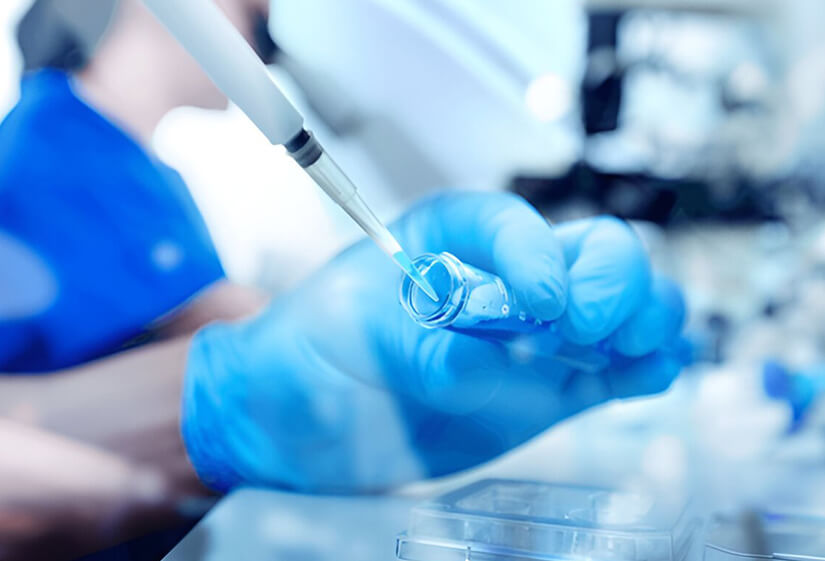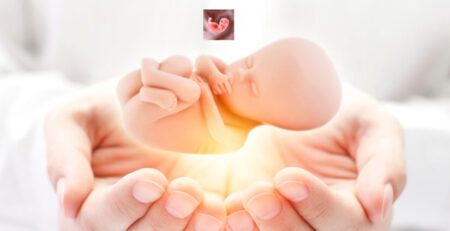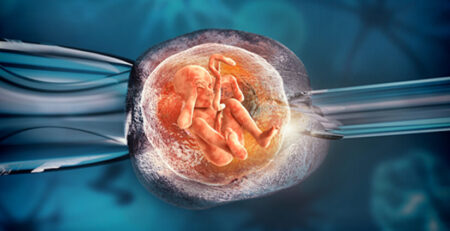Why Didn’t My Embryos Grow In IVF?
Struggling with IVF can be emotionally and physically exhausting, especially when your hopes hinge on seeing embryos grow, only to find they’ve stopped developing. This phenomenon, known as embryo arrest, is more common than many realize and can be a major setback for couples trying to conceive. So why does this happen, and what can you do about it? Let’s explore the reasons behind embryo arrest, address common concerns, and shed light on potential solutions.
What is Embryo Arrest?
Embryo arrest occurs when the fertilized egg stops developing at any stage before implantation. During IVF, embryos typically grow in a lab for up to five or six days before being transferred to the uterus or frozen. If an embryo fails to progress through these stages, it cannot be implanted, resulting in a failed cycle.
The causes of embryo arrest are multifactorial, ranging from genetic abnormalities to environmental factors. Understanding these reasons can provide clarity and guide patients toward better outcomes in future IVF attempts.
Key Stages of Embryo Development
Embryo development is a highly complex and delicate process that begins with fertilization and progresses through several distinct stages. Each stage plays a crucial role in the embryo’s ability to develop into a viable pregnancy. Understanding these stages not only sheds light on the normal growth process but also helps identify potential issues like embryo arrest, which can halt development at any point. Here’s a closer look at the key stages:
- Fertilization: The Beginning of Life
The process begins when a mature egg (oocyte) is fertilized by a sperm cell. The fusion of these two cells forms a single-cell entity known as a zygote, containing all the genetic information needed for development. This step is critical, as any abnormalities in the genetic material or the fertilization process can disrupt subsequent development.
- Cleavage Stage (Days 2–3): Rapid Cell Division
In the days following fertilization, the zygote undergoes cleavage, a series of rapid mitotic divisions. During this stage, the single-cell zygote divides into multiple smaller cells called blastomeres, forming a solid ball of cells known as a morula on day 4. The cells remain totipotent, meaning they have the potential to develop into any type of cell required for the formation of the embryo and placenta.
- Key milestones: Successful and timely division of cells is crucial. Any disruption here can lead to developmental arrest.
- Blastocyst Stage (Days 5–6): Preparation for Implantation
By day 5 or 6, the dividing cells organize into a hollow structure known as the blastocyst. The blastocyst is composed of two main parts:
- The inner cell mass (ICM), which will develop into the fetus.
- The trophoblast, which will form the placenta and support structures.
At this stage, the blastocyst hatches from its protective outer shell (zona pellucida) and prepares for implantation into the uterine lining. Proper formation and hatching of the blastocyst are critical for successful implantation and the continuation of pregnancy.
Identifying the stage at which arrest occurs can provide insights into potential underlying causes and inform strategies for intervention or improvement in assisted reproductive technologies.
Understanding these stages highlights the intricacies of embryo development and the potential challenges it faces, paving the way for advancements in fertility treatments and reproductive health.

Getting pregnant is now easier
Book IVF Consultation
Common Causes of Embryo Arrest
- Genetic Abnormalities
Genetic issues are the leading cause of embryo arrest. Chromosomal abnormalities in either the egg or sperm can lead to embryos that lack the genetic material needed for proper cell division. This can occur in:
- Older women: The quality and quantity of eggs decline with age, increasing the chances of chromosomal abnormalities.
- Poor-quality sperm: Sperm DNA damage can also result in defective embryos.
- Poor Egg or Sperm Quality
The foundation of a healthy embryo lies in high-quality eggs and sperm. If either is compromised, it can lead to poor-quality embryos that fail to grow. Factors contributing to poor quality include:
- Hormonal imbalances in women, such as those caused by PCOS or endometriosis.
- Lifestyle habits like smoking, excessive alcohol consumption, and poor diet.
- Male infertility factors, such as low sperm count or motility.
- Laboratory Conditions
In IVF, embryos grow in a controlled lab environment. Any disturbance in this environment can disrupt growth. Common issues include:
- Inconsistent temperature or pH levels.
- Poor-quality culture media.
- Suboptimal handling during procedures.
- Lifestyle and Environmental Factors
External influences also play a role in embryo development. Smoking, high-stress levels, obesity, and exposure to toxins can negatively affect both egg and sperm quality, indirectly contributing to poor quality embryos.
- Underlying Health Conditions
Certain medical conditions can hinder embryo growth. For instance:
- Thyroid disorders may disrupt hormonal balance, affecting egg quality.
- Immune system issues can interfere with embryo development or implantation.
- Uterine abnormalities, such as fibroids, may not directly cause embryo arrest but can affect implantation.
What Does a Poor Quality Embryo Mean?
A poor quality embryo refers to one that does not meet the criteria for normal growth and division. Embryologists evaluate embryos based on specific parameters, including cell count, symmetry, and fragmentation. Poor-quality embryos are less likely to develop into blastocysts and may have a lower chance of implantation.
Key Signs of Poor-Quality Embryos:
- Uneven or irregular cell sizes.
- Excessive cell fragmentation.
- Slow or stalled division.
While not all poor-quality embryos fail, their chances of successful implantation and resulting in a healthy pregnancy are significantly reduced. Understanding embryo quality is critical for setting realistic expectations during IVF.
How Can You Address Embryo Arrest?
If you’ve experienced embryo arrest, don’t lose hope. There are ways to improve future outcomes with targeted strategies.
- Improving Egg and Sperm Quality
Lifestyle and medical interventions can significantly enhance the quality of eggs and sperm. Some measures include:
- For Women:
- Taking supplements like CoQ10, DHEA, and folic acid to boost egg quality.
- Maintaining a healthy weight and managing underlying conditions like PCOS.
- Use of better injections in next IVF cycle stimulation
- For Men:
- Incorporating antioxidants like Vitamin C and E to improve sperm DNA integrity.
- Avoiding heat exposure (e.g., saunas or hot tubs) that can harm sperm production.
- Use of sperm selection methods.
- Optimizing Laboratory Conditions
Choosing a clinic with advanced technology and highly trained embryologists can make a difference. Ensure the clinic follows strict protocols to maintain ideal conditions for embryo culture.
- Personalized IVF Protocols
Working with an experienced IVF doctor in Delhi can help create a tailored treatment plan. For instance:
- Adjusting hormonal stimulation to optimize egg retrieval.
- Using advanced techniques like ICSI (Intracytoplasmic Sperm Injection) for fertilization.
- Exploring donor eggs or sperm if poor quality is a persistent issue.
- Emotional and Mental Well-being
Dealing with embryo arrest can be emotionally taxing. Addressing stress through counseling, meditation, or support groups can improve overall well-being, which may indirectly benefit fertility.
Frequently Asked Questions About Embryo Arrest
Poor-quality eggs may form embryos, but these embryos often have a higher likelihood of arrest or implantation failure. Improving egg quality is crucial for better outcomes.
Adopting a healthy lifestyle can significantly impact embryo quality. This includes quitting smoking, limiting alcohol, eating a nutrient-rich diet, and managing stress effectively.
Yes, embryo arrest can occur during the first IVF cycle, particularly in women over 35 or those with fertility challenges. Each case is unique, so results may vary.
Switching to a clinic with better technology, experienced embryologists, and a proven track record can improve IVF outcomes, especially in cases of recurrent embryo arrest.
If embryo arrest occurs repeatedly, your doctor may recommend options like donor eggs or sperm, advanced genetic testing, or alternative fertility treatments to improve success rates.
When Should You Consult an IVF Doctor in Delhi?
If you’ve experienced embryo arrest during IVF, it’s crucial to seek help from a skilled fertility specialist. An experienced IVF doctor in Delhi can:
- Analyze the specific reasons behind the arrests.
- Recommend genetic testing to identify viable embryos.
- Tailor your IVF protocol to maximize success.
Breaking the Cycle of Embryo Arrest
Facing embryo arrest is undoubtedly challenging, but it doesn’t mean your dream of parenthood is out of reach. With advancements in IVF technology and personalized care, overcoming these obstacles is possible.
Dr. Rhythm Gupta, a renowned IVF doctor in Delhi, has helped countless couples navigate the complexities of fertility treatments. With her expertise, compassionate approach, and access to cutting-edge techniques, you can take the next steps confidently.
Book a consultation today to explore your options and move closer to building the family you’ve always dreamed of.

Dr. Rhythm Gupta
Consultant Obstetrician,
Gynaecologist & Infertility Specialist,
MBBS, M.S Obstetrics & Gynaecology
At Excel IVF, we don’t just treat tests and parameters. We partner with you through the emotional, scientific, and medical journey of fertility. Here, Dr. Rhythm Gupta, the leading IVF specialist in Delhi, shares insights from her years in reproductive medicine, breaking down myths, best practices, and what matters most in your path to becoming a parent.
Book a consultation today to understand better and begin your parenthood journey. Call: +91-8920963596 or Email Us: excelivf@gmail.com






